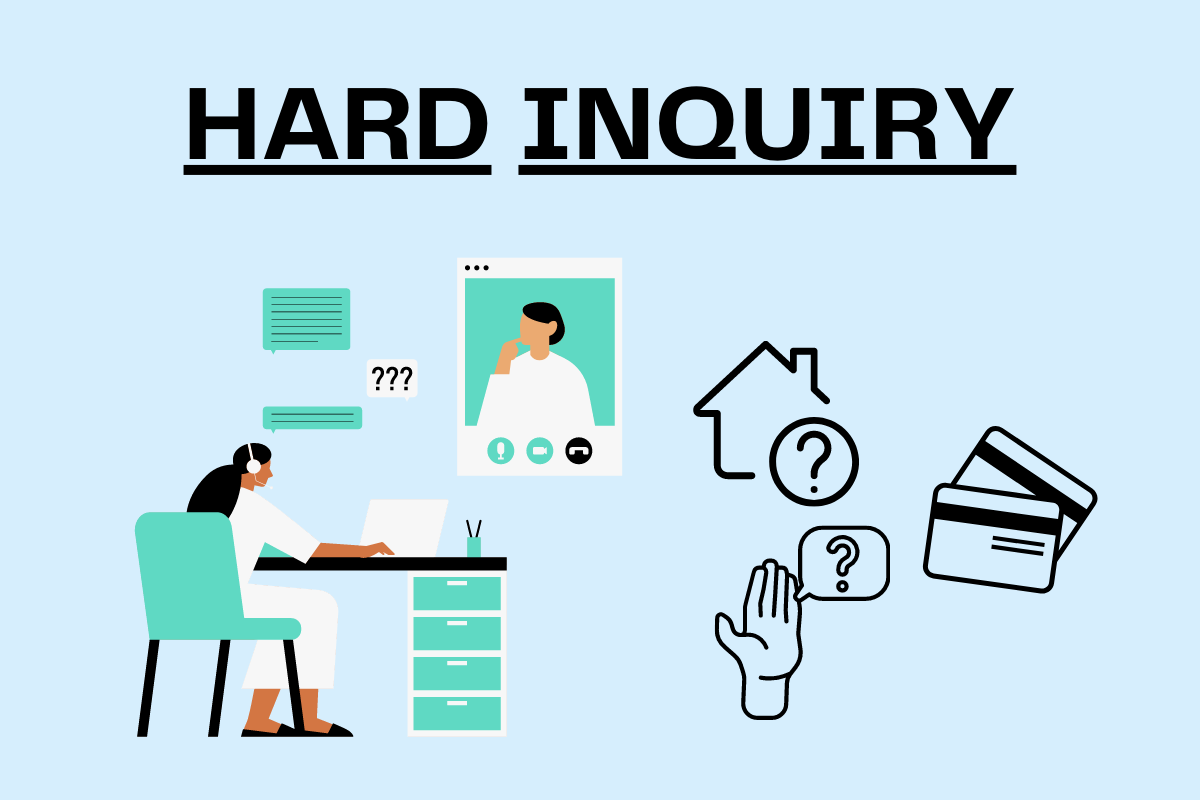People in need of money will reach out for a line of credit from financial institutions. Every financial sector cross-checks the details of the customers before providing loans. When they ask for the customer’s details to make their decision, they record that request in the customer’s credit history. The financial institutions’ requests to view the credit history are soft and hard inquiries based on the nature of the requests. This article discusses hard inquiries and the ways to remove them if possible.
A credit inquiry is a request for credit report information from a credit-reporting agency. Credit inquiries will be from all entities for various reasons. Lenders need hard inquiries before they extend credit. Hard inquiries will cause a temporary decrease in your credit score. Financial institutions make these inquiries. There are two types of inquiries:
- Soft Inquiry
- Hard Inquiry
Creditors will look at debt-to-income ratios and housing expense ratios.
Soft Inquiries
Soft inquiries are not included in a credit report. These inquiries are requested for a variety of reasons. Credit companies have relationships with credit bureaus for soft inquiries that result in marketing lists for potential customers.
What is a Hard Inquiry?
A hard inquiry occurs when you apply for a new loan or credit card. It involves the lender checking one or more credit reports to determine if you meet its criteria. This is also known as a hard credit check or a hard pull.
All hard inquiries will not have an impact on credit scores. When you’re applying for auto or mortgage loans, you may face various hard inquiries. The lenders check your credit to determine the terms and rates to offer. When you apply for the loans within 14 days, then it is one inquiry.
You cannot remove hard inquiries that are legitimate from a credit report, but it disappears from your credit report after two years. It impacts your credit score for about one year.
If you find an unauthorized hard inquiry on your report, then you can remove it by filing a dispute. The credit bureaus will investigate dispute requests, and they will determine if your dispute is frivolous.
The Fair Credit Reporting Act (FCRA) requires the credit bureaus to inform consumers when a creditor performs a hard inquiry on their credit report by noting the inquiry in their credit file.
These are some of the examples of hard inquiries that are on the credit reports:
- Credit card applications
- Loan and mortgage applications
- Applications for a line of credit
- Skip tracing by a collection agency
Remove Hard Inquiry
You can remove an unauthorized hard inquiry by filing a dispute with credit bureaus.
The government and the credit reporting industries that recognize credit reports might make errors, and it provides a way to dispute your credit reports.
You can note down the few steps to remove hard inquiry:
- Look for hard inquiries in your credit report. Make sure you recognize and authorize all you find.
- Again, for an unauthorized hard inquiry apply for its removal. You can file your disputes through online forms or by telephone.
- Collect the necessary documents that support your claims.
- Allow 30 days or less to get the results of a dispute investigation.
Impacts on Credit Score
Getting a credit card is an easy and important step in building credit, but each credit card application triggers a hard inquiry that hurts your credit score.
It is better to avoid making several inquiries in a short period. As long as you keep the inquiries within a certain time, they will only count as one in your score calculation.
The FICO will look at your credit report for rate-shopping inquiries. They will consider inquiries that fall in a shopping period as one inquiry.
Each lender uses a different version of the FICO formula to calculate your credit scores. Vantage score will maintain all the loan inquiries on your credit report. This will show up on your credit report, and it sums up together for your credit score calculation.
Check Your Credit Report Regularly
It is easier to find inaccurate information on your credit report. If you check your credit report regularly, you can reduce fraudulent false information. Review your reports and check if all the listed information is correct.
Credit reports do not have credit scores, but they elaborate on factors that can affect credit scores. People should understand the difference between credit reports and credit scores and watch their credit scores for sudden drops, or any fraudulent activity, and make necessary attempts to boost their credit scores. Like a fraud, an account opened in your name is unpaid.
It’s not always possible to prevent identity theft, but keep track of your credit history. You’ll be in a better position to stop a difficult situation from getting worse.
To check for incorrect hard inquiries on your credit reports, just take a look at the sections like:
- Credit inquiries
- Hard inquiries
- Requests viewed by others
- Regular inquiries
If you’re not sure how to read the information on your credit reports, then learn more about what’s on your credit reports and how to read them.
Is It a Must to Remove Hard Inquiry?
As previously described, to improve your credit score it is necessary to remove a hard inquiry, but disputing a genuine hard inquiry on your credit report will not result in any change in your credit scores.
The disputed ones are a result of fraud. This will happen when an identity thief uses your Social Security number and other personally identifiable information to open a new account in your name.
If you spot a hard credit inquiry and you don’t recognize it, it’s better to remove it. There are a few reasons for this.
- It means that you’re being unfairly penalized for that error.
- It could be a sign of fraud, so it’s important to investigate it further and to get it removed.
Frequently Asked Questions
-
Is there any possibility to have inaccuracies in your credit report?
Sometimes, a credit report may have errors. The responsibility for those errors is a shared responsibility among the customers, banks, and the reporting agencies. The customers can visit the dispute resolution section to fill and submit the necessary forms to resolve errors in the report.
-
Will a hard inquiry affect my credit score?
Hard inquiries affect the credit score in small numbers. The score may come down by five to six points. If customers maintain a high credit score, then this will not affect them, but having more than five or six inquiries is not good for the score.
-
Will a soft inquiry affect my credit score?
Soft inquiries appear when customers make requests to view their credit history. These inquiries do not get displayed in the reports and do not affect the credit score.
-
Is it possible to remove hard inquiries?
Hard inquiries appear in the credit report when you apply for a line of credit, so in this case, you can not remove the inquiry. But, if it appears without your knowledge, you can file a claim with the reporting agencies to remove the inquiry. Otherwise, common hard inquiries disappear after a year or two.
Key Take Away
Finally, don’t worry about hard pulls. Remember that these inquiries are part of normal credit use and will naturally fall off of your credit report after two years without any action necessary on your part.
On reading the article you would have found how hard inquiries can affect your credit scores. If you believe you are the victim of fraud, then you ensure that you have the best credit possible moving forward. For further reading to safeguard yourself from fraudulent activities, you may read,
- Top 5 ways you could become a victim of fraud,
- Simple computer security tips to prevent identity theft
- What to do if your identity is stolen?
If your credit score is high and you want to improve it, then the credit pros will be a good option for you. The Credit Pros will help you in repairing services and addressing questionable negative items on your credit report.


